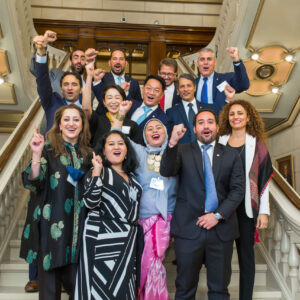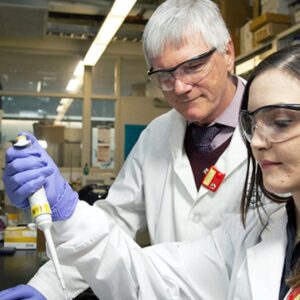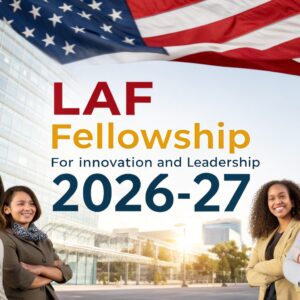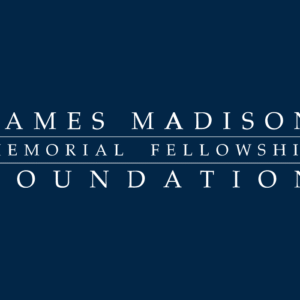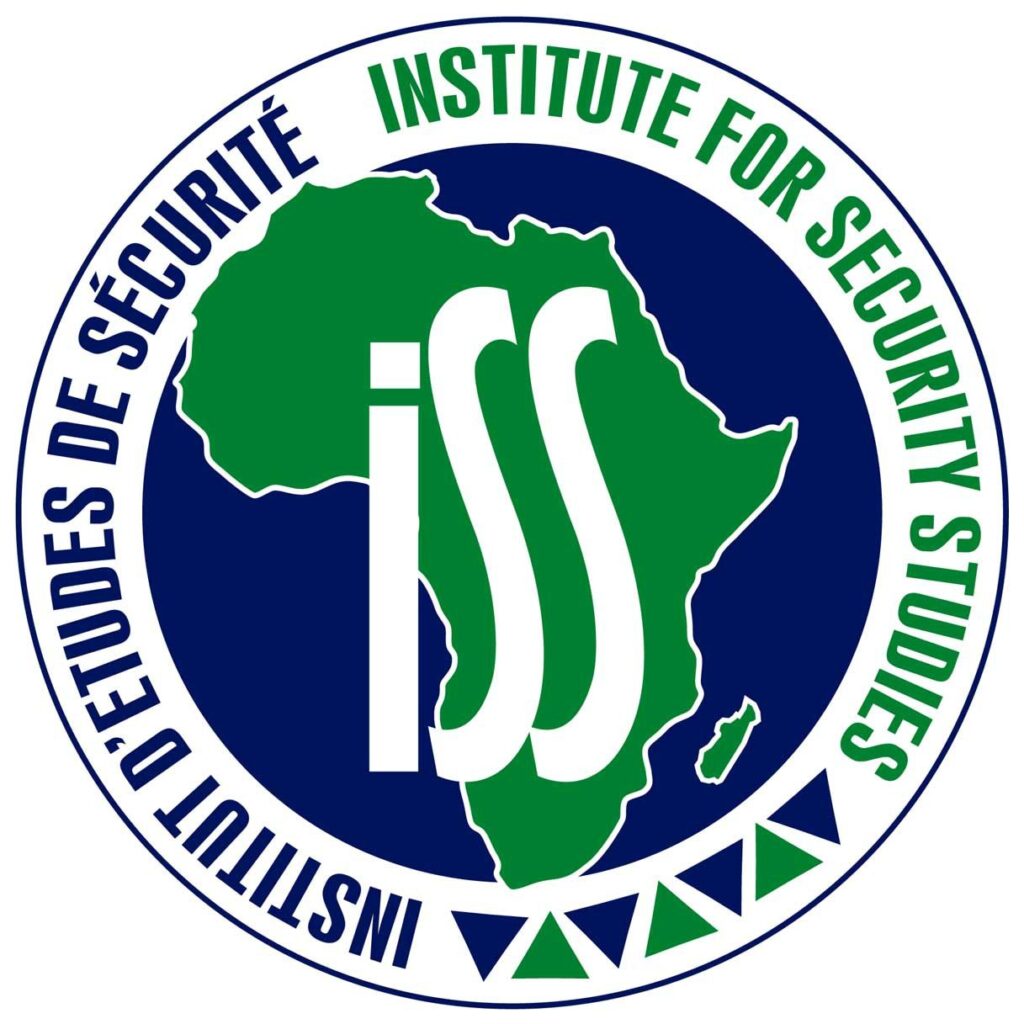
Let’s be real — breaking into the world of international policy, peacebuilding, or security studies isn’t easy, especially for young Africans navigating limited resources or access to powerful networks. But what if you had a fully funded gateway to one of the most reputable think tanks in Africa, located right in the heart of West Africa — Dakar, Senegal? That’s where the Institute for Security Studies (ISS) Junior Fellowship Programme 2025/2026 comes in. If you’re a young, passionate West African looking to work on real-world issues that matter — this is your chance.
What is the Institute for Security Studies (ISS)?
Mission and Vision
The ISS is a pan-African organization working to enhance human security by providing credible research, policy advice, and capacity-building. With offices in Addis Ababa, Pretoria, Nairobi, and Dakar, ISS is known for its forward-thinking initiatives in governance, crime prevention, justice, and security.
Regional Impact and Partnerships
ISS partners with the African Union, ECOWAS, and a range of international agencies to ensure its work has practical, policy-level impact. Their work shapes laws, reforms systems, and empowers local experts — and you could be part of that transformation.
About the ISS Junior Fellowship Programme
Purpose of the Fellowship
The Junior Fellowship is designed to equip emerging African leaders with the research tools, mentorship, and platforms they need to build careers in policy, security, governance, or development.
Core Objectives
- Develop regional knowledge and professional capacity in peace and security
- Encourage local ownership of policy solutions
- Promote diverse, youth-led research and dialogue
Why Apply for the ISS Fellowship?
Career Advancement
Imagine adding “Research Fellow at ISS” to your CV. That’s not just a title—it’s a career boost that opens doors in government, academia, NGOs, and international bodies.
Professional Network Expansion
Fellows engage with global experts, regional leaders, and ISS alumni, creating a solid base of connections that lasts well beyond the fellowship.
Exposure to Regional Security and Policy Frameworks
You’ll get first-hand insights into peacekeeping, governance, and human rights policies that shape the region.
Fellowship Coverage and Benefits
Fully Funded Travel and Accommodation
The programme covers your round-trip travel to Senegal and full accommodation throughout the fellowship.
Monthly Stipend
Each fellow receives a competitive monthly stipend to support daily expenses — no financial strain, just focus.
Access to Research Resources
Gain unrestricted access to ISS’s comprehensive library, journals, and academic tools. Collaborate with seasoned researchers and mentors.
Mentorship and Training
Fellows are paired with expert mentors and receive structured training in research methodology, policy writing, and data analysis.
Who Can Apply?
Citizenship and Residency Requirements
You must be a citizen of a West African country and residing within the ECOWAS region at the time of application.
Age and Academic Qualifications
Ideal candidates are under 35 and hold a minimum of a bachelor’s degree in Political Science, International Relations, Security Studies, or a related field.
Preferred Fields of Study
Applicants with academic or professional backgrounds in governance, law, peace studies, or climate security are especially encouraged to apply.
Key Dates and Duration
Application Deadline
Applications usually close in late August 2025. Keep an eye on the official ISS website for exact dates.
Programme Timeline
The fellowship typically runs for 6–12 months, depending on research focus and deliverables.
Focus Areas of the Fellowship
Governance and Security
Study democratic trends, rule of law, and citizen engagement in political processes.
Crime Prevention
Contribute to research on organized crime, terrorism, and transnational justice systems.
Peacebuilding and Conflict Resolution
Engage in field research, document case studies, and develop policy recommendations.
Climate Security and Development
Explore the security impacts of climate change and resource conflicts in the Sahel and beyond.
Location: Why Dakar, Senegal?
Strategic Importance of Dakar
As a hub for regional organizations, embassies, and development agencies, Dakar offers a front-row seat to West Africa’s geopolitical theater.
Cultural and Academic Environment
Senegal is rich in history, art, and intellect. Dakar’s vibrant culture and academic institutions provide a stimulating environment for research and collaboration.
Step-by-Step Application Process
Online Application Portal
All applications are submitted through the ISS career portal. Follow instructions carefully and double-check your entries.
Documents Required
Email your applications details to dakarjobs@issafrica.org
- Academic transcripts and degree certificates
- Updated CV
- Statement of interest
- Two letters of recommendation
- Writing sample (research paper or policy brief)
Submission Guidelines
Ensure all documents are in PDF format. Late or incomplete submissions won’t be considered.
Tips to Make Your Application Stand Out
Crafting a Compelling Statement of Purpose
Be specific. Show how your background aligns with ISS’s mission. Connect your passion to real-world impact.
Writing an Effective CV
Focus on relevant experiences—research projects, internships, leadership roles—and quantify achievements when possible.
Choosing the Right Referees
Select academic or professional contacts who can highlight your strengths clearly and confidently.
Selection Criteria and Process
Evaluation Metrics
Applications are assessed based on academic merit, relevance of experience, alignment with ISS values, and regional representation.
Shortlisting and Interview Process
Shortlisted candidates are invited for virtual interviews to discuss their research interests and potential contributions.
Final Selection and Notification
Selected fellows will be informed via email and receive onboarding materials and logistical support.
What to Expect as a Fellow
Orientation and Onboarding
The programme kicks off with a comprehensive orientation covering expectations, office protocols, and available resources.
Research Assignments
Each fellow contributes to one or more ISS projects, working on data collection, analysis, and writing.
Policy Brief Contributions
You’ll write or co-author briefs, reports, or journal articles addressing urgent regional issues.
Regional Travel and Conferences
Fellows may be invited to regional policy dialogues, conferences, or training workshops.
Alumni Testimonials and Success Stories
Profiles of Past Fellows
Meet alumni who now work with UN agencies, African Union departments, and top international NGOs.
Impact in Their Home Countries
Many alumni have launched their own advocacy groups, policy forums, or research centers in their communities.
Frequently Asked Questions (FAQs)
Q1: Is knowledge of French required?
A1: While not mandatory, basic knowledge of French is beneficial, especially in Dakar.
Q2: Can I apply if I’m still finishing my degree?
A2: No, you must have completed your bachelor’s degree before the fellowship starts.
Q3: Do I need prior work experience?
A3: Experience in research or policy is an asset, but not strictly required.
Q4: Will I be offered a job at ISS after the fellowship?
A4: The fellowship does not guarantee employment, but it significantly boosts your career prospects.
Q5: Can I choose my research topic?
A5: Yes, within the thematic focus areas approved by ISS.
Conclusion
If you’re passionate about transforming Africa’s security landscape, shaping inclusive governance, or driving peace initiatives, the ISS Junior Fellowship is your launchpad. Fully funded, intellectually enriching, and career-defining — this opportunity is more than just a line on your CV; it’s your gateway to becoming a change-maker.
Ready to make a difference? Start your application today.

